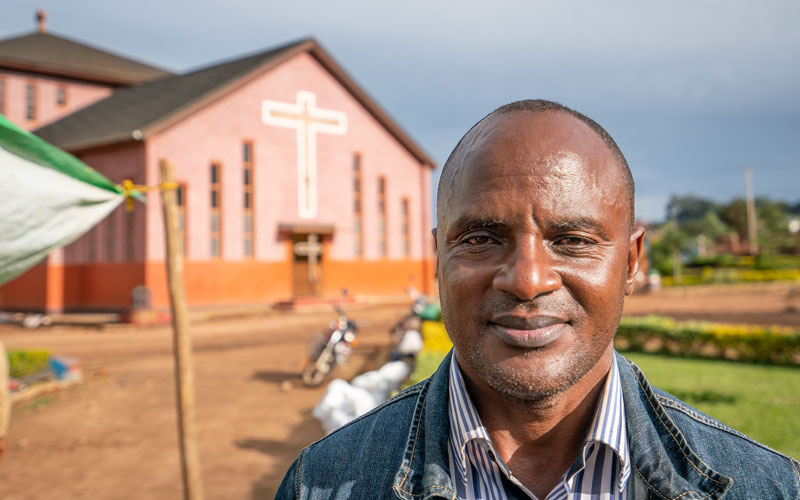Photo Caption: Theresa* seen here with the youngest of her four children, survived the Ebola outbreak that affected the Eastern Democratic Republic of Congo from 2018-2020. Photo: Brett Tarver
“It was my mother-in-law who was the first to be infected,” says Theresa*. We’ve changed her name to protect her identity.
“After her death I also felt sick. I was feeling cold and I started vomiting with diarrhea,” she recalls. “I was feeling very, very bad. I don't know even how to explain it. I was feeling very bad and so weak.”
Theresa isn’t talking about COVID-19. No, before the novel coronavirus, another disease swept across her country: Ebola Virus Disease (EVD).
Watch this video and hear Theresa tell her story in her own words. Find out how World Vision’s approach to overcoming EVD is now helping families like Theresa’s prepare for COVID-19.
Video: World Vision Canada
“My mother-in-law. My father-in-law. My husband, his brother; there were six in my family, and five died. I'm the only one who survived,” she says, remembering the faces of her loved ones.
From 2018-2020
the Democratic Republic of Congo (DRC) faced
the second largest EVD outbreak in history. More than 2,000 people died.
“It was my pastor who helped me,” says Theresa. “He came to us. And even now, he continues to visit.”
World Vision’s Channels of Hope program partners with local, trusted leaders to educate communities to stop the spread of deadly diseases.
 Through the
Through the Channels of Hope
program, Pastor Sam* raises awareness about the spread of deadly diseases in his church. Thanks to the training he received, he was able to identify the risk to Theresa and her children, and encouraged them to seek treatment which ultimately saved her life. Photo: Brett Tarver
“World Vision came to us and said please, you are pastors, you are close to your followers. You are close to the people in the community. Please. Will you come and help us to erase misinformation about Ebola?” remembers Pastor Sam*.
“We were trained by World Vision to teach people about the Ebola outbreak, how we can make the public aware in the church,” he says.
“We didn't even believe really. It was unbelievable,” says Theresa. “But the pastor came and said:
Ebola exists. You must go get treated. Go to the treatment centre, please.”
“Pastor Sam is the most important person to me in this Ebola outbreak. He saved my life,” Theresa asserts. “If he didn't come to tell me things about Ebola I would have died.”
Right now, in DRC, World Vision is training faith leaders to promote lifesaving messages and practices to prevent COVID-19 from spreading.
“
Channels of Hope is the inspiration of God,” says Pastor Sam. “It came to save the lives of people.”
*Names changed to protect their identities.